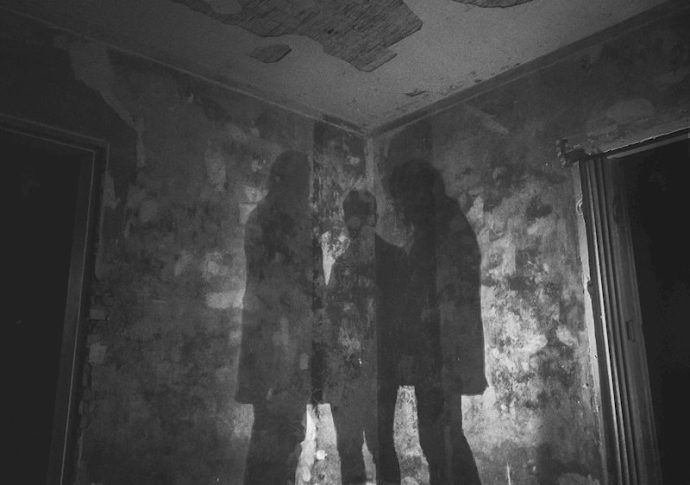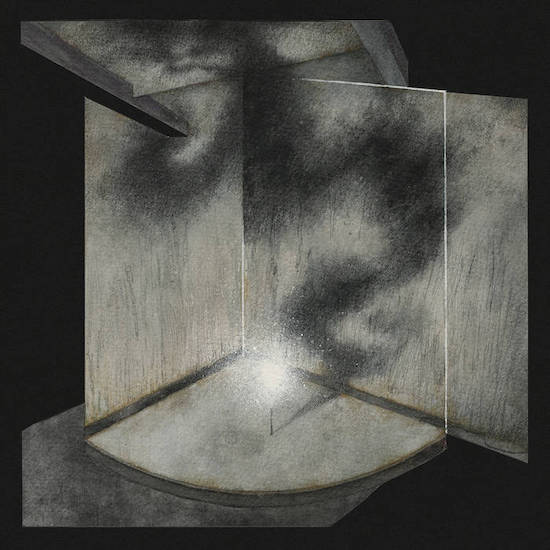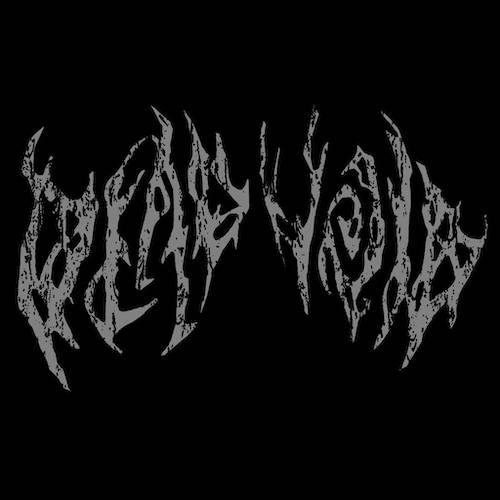
(In mid-September Me Saco Un Ojo and Dark Descent jointly released Volatile Forms, the stunning debut album by the Danish Dead Void. We shared our thoughts about it here, and spurred on by that album, Comrade Aleks participated in the following interview of the band.)
This time I had a kind of technical problem, so to say, and this interview with Copenhagen-based trio Dead Void was complete somewhere in September, around the official release date of their debut album Volatile Forms.
This trio preaches hostile, quite torturous, and nihilistic death-doom metal with an uncompromising approach and a brutal delivery. Cianide, a bit of Asphyx, and so on, you know? Dead Void is a cold and monstrous entity, so I wonder if we need to waste our time trying to add a few more empty words, as you can read this short but good interview and listen to Volatile Forms by the way.
******
Hi guys! How are you? What’s Dead Void’s current status?
Hi. We just played our album release gig in Copenhagen in advance of the global release of our debut album, Volatile Forms, which comes out on the 15th of September through Dark Descent Records in the US and Me Saco Un Ojo Records in the UK.
Well, first of all, I see that all of Dead Void’s members seem to keep their real names secret, though Metal-Archives solves this issue with all those links on other projects where you were involved. Would you prefer to keep your identity private and let the listeners focus only on your music?
Our identities are no huge secret; as you mention, the information is out there and easily found, but it’s not something that really matters. Shifting focus from the mundane, human element gives priority to the music, perhaps also enabling Dead Void to become more of an entity in and of itself. It also creates a more enigmatic veil that fits the atmosphere of our music and its visual accompaniments.

Most of you played in more extreme (fast) bands before. How naturally was it to switch to the death-doom path?
It feels very natural to tread our own path; this is where we are now. The band even started while I was still in my old band, inspired by a drive to get back to channeling the spirit of the old bands that got me into this in the first place, as well as something much more personal.
I would actually say that Dead Void is arguably more ‘extreme’ in various ways than any of our previous bands. Speed is not something we focus on, rather we appreciate and utilise a broad range of dynamics. For some reason other people seem to focus on the slow sections and think that’s just what we do.
Which qualities of death-doom did you aim to reflect through Dead Void’s stuff? What are your core influences?
We have no aims to tick off any genre requirements, more a desire to go back to basics and develop things from there with the benefit of knowledge and experience.
The impetus was partly a reaction to what was going on around us, with a plan to jam on influences from old legends like Goatlord, Cianide, Mystic Charm and Candlemass with a little Necrovore and Incubus thrown in here and there. Fucking Heavy Death Metal. Songs that focus on solid, heavy and memorable riffs with creative songwriting, rather than the “tremolo-picked single notes + reverb = death metal” formula that seemed to dominate at the time. The doom influence comes mainly from the classic doom metal bands, particularly in terms of songwriting.
Overall it was a bold plan that got moving quickly and worked well from the start, and I feel we’ve taken these influences very much in our own direction over the last few years.
You recorded three demos since 2017 and until 2021, but I see that Volatile Forms contains only new material. Did you rework some of your old songs or decide to keep only new material for the album?
We still play and develop some of the demo material, which might perhaps bring reworked versions to future releases, but the album was constructed as a whole piece, and those songs, as well as some other newer material, didn’t have a place. Although an early version of ‘Sadistic Mind’ was actually recorded at the same time as the demo, but we kept it aside as we felt it still needed some development.
How did you elaborate that menacing distorted sound in the studio? What were your requirements for the songs’ quality when you entered the studio?
Our reference point when we entered the studio was actually just our demo tape. The main thing we asked for was to capture the organic, suffocating sound and feeling of The Looming Spectre, but with just a little more clarity to allow the faster sections to cut through a little more. We recorded mostly live with Marcus Ferreira Larsen at No Master’s Voice in Copenhagen and I think he did an excellent job in helping us achieve our aims.
How would you sum up the general lyrical concept behind Dead Void? What kind of lyrics do you see as most fitting for your songs?
The lyrics focus on the psychological. The darkest horror is that which is relatable, particularly when it comes from within. This also allows personal reflection, development, and almost a kind of therapy while writing songs. For me, approaching songs from a personal place helps inform the sound, atmosphere, and development of the music that carries the lyrics. Many of the initial ideas behind the band’s concept came from my own personal experiences and traumas.

Do I get it right that you had some Lovecraftian influences in your songs as well?
I’m sure we all read Lovecraft in our younger years, but there’s no direct influence on our music. Our own nightmares and demons are influence enough without having to borrow somebody else’s.
The rules of the game keep on changing: Physical format isn’t that appealing as before for many metalheads despite their conservative approach; the gigs are more rare now because of covid; and it seems there’s no big enthusiasm towards live madness, as concert attendance is low. Do these side-effects of the “metal business” affect your approach towards Dead Void?
We’re playing a niche within a niche, so whatever goes on around us doesn’t really matter in terms of what we create. It likely means fewer gig opportunities and fewer records sold, but when you play obscure music that asks a lot of the listener’s attention, you’re pretty much signing up for that anyway.
How active were you regarding playing live during the last two years?
I believe we actually played more during covid than we had in previous years, with some strange (occasionally fucking awful) seated gigs and some outdoor shows. Fortunately we have the dynamic range to adapt our setlist to fit the surroundings, even if it means playing outdoors on a hot, sunny day.
What are your plans for Dead Void for the rest of the year?
At this point we’ll probably focus on writing and finishing off new songs. We currently have enough songs and plans in development for two more releases. They will see the light of The Void when they are ready.
https://www.facebook.com/TheDeadVoid/
https://deadvoid.bandcamp.com/
https://mesacounojo.bandcamp.com/album/volatile-forms
https://darkdescentrecords.bandcamp.com/album/volatile-forms
